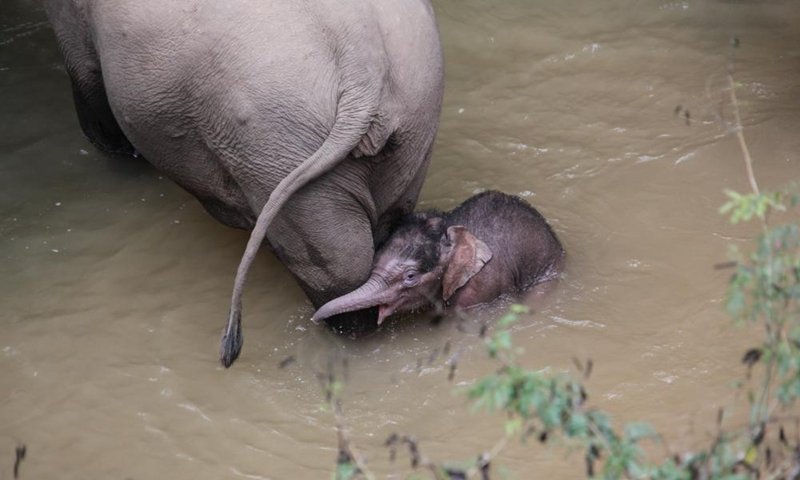In Mohan town, situated in Southwest China’s Yunnan Province, a recent sighting of 43 wild Asian elephants venturing close to residential zones has stirred attention. The local population, in response, has prudently maintained a safe distance, resulting in no reported incidents of physical harm to the residents.
The elephant herd’s presence was first reported to the Kunming fire and rescue detachment by local villagers on July 12. Witnesses observed the elephants trampling and consuming crops from farms in the town’s Mohan-Boten Economic Cooperation Zone.
Continual surveillance from the local fire department revealed the elephant herd gradually approaching residential areas. Notably, the herd has been seen making this journey twice and currently seems to be shifting toward the farms in the town’s Molong village, approximately eight kilometers from the Mohan-Boten Economic Cooperation Zone.
As a response, the local fire and rescue detachment has issued a warning notice to the nearby villagers about the advancing elephant herd. Wildlife expert Xie Zhongyi, speaking to the Global Times, stressed the significance of such timely updates, emphasizing how they could “effectively prevent” potential “extreme harm” to individuals.
The concerns are not unwarranted. Wild Asian elephants can indeed pose a threat to local residents, as seen from past incidents. In May, four separate attacks by wild elephants in Yunnan Province’s Xishuangbanna resulted in three fatalities and one injury. Xie explains that wild Asian elephants often feel “insecure and threatened” if humans encroach upon their space or share their natural resources. This fear is a principal trigger for their aggressive behavior.
“Constant monitoring is a good way to maintain the balance between local villagers and wild elephants since we cannot prohibit them from moving into our everyday zone and cannot harm them in defense,” Xie said, highlighting Yunnan’s evolved approach to managing this human-animal conundrum.
Efforts to monitor the elephants’ migration are currently underway, with a six-person team from the Kunming fire department tracking the herd’s movements. They are using 60 unmanned aerial vehicles and over 10 regularly updated “elephant journey” maps, helping to guide locals to safety.
Home to wild Asian elephants, Yunnan is internationally recognized for its biodiversity. In 2021, a northward-moving Asian elephant herd gained considerable public attention. Li Jun, an expert on ethical human-animal relationships, spoke to the Global Times about how Yunnan’s abundant elephant population has fostered more “humane measures” to manage elephant interactions.
One of these measures includes the implementation of an “Asian elephant insurance” service since 2010. In collaboration with an insurance company, the Xishuangbanna local government invests 14.71 million yuan ($2.04 million) annually into this initiative. The insurance program compensates villagers for any damages caused by the elephants, ensuring a balanced and sustainable approach to wildlife management.
READ MORE:
